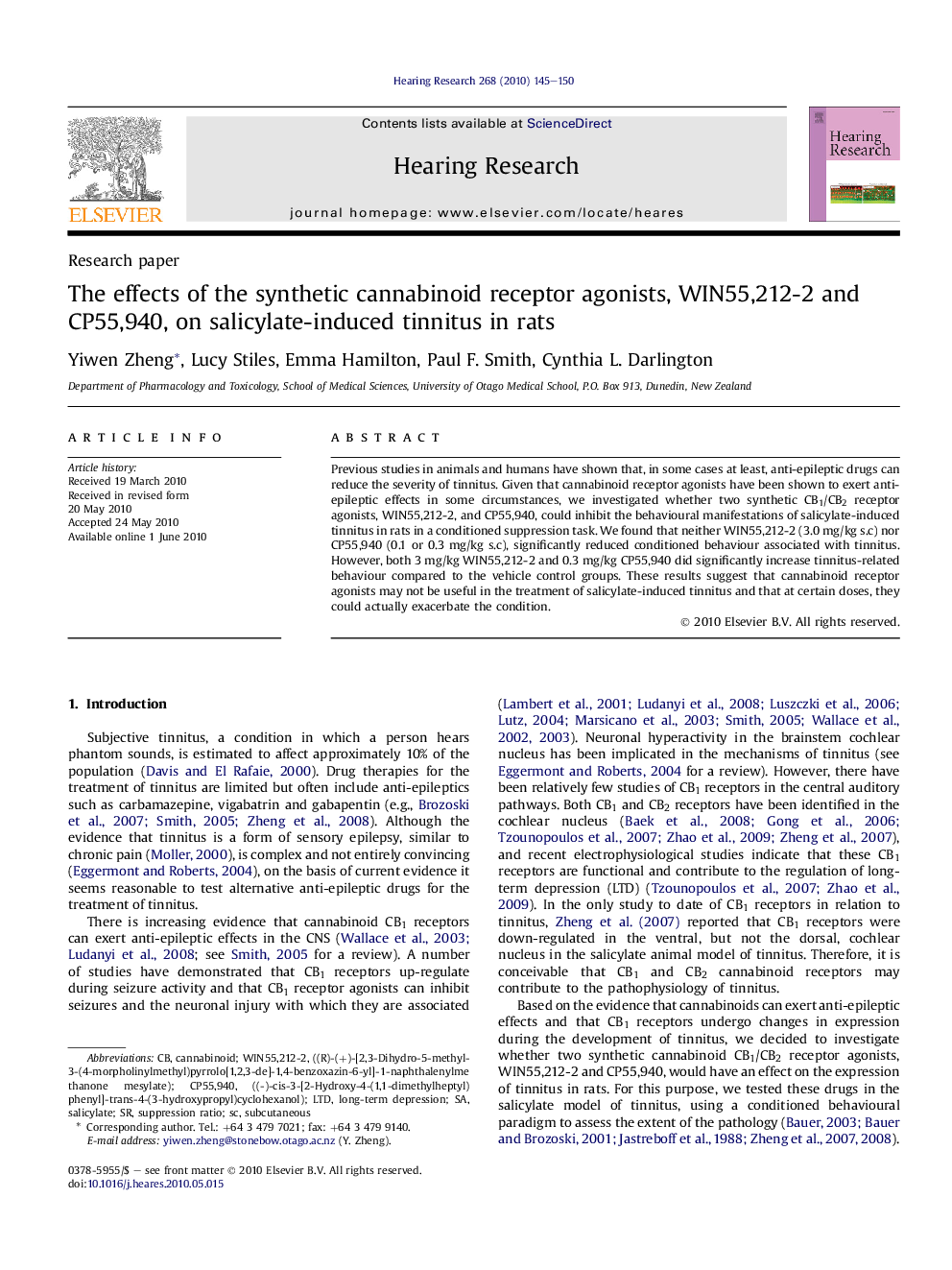| Article ID | Journal | Published Year | Pages | File Type |
|---|---|---|---|---|
| 4355612 | Hearing Research | 2010 | 6 Pages |
Abstract
Previous studies in animals and humans have shown that, in some cases at least, anti-epileptic drugs can reduce the severity of tinnitus. Given that cannabinoid receptor agonists have been shown to exert anti-epileptic effects in some circumstances, we investigated whether two synthetic CB1/CB2 receptor agonists, WIN55,212-2, and CP55,940, could inhibit the behavioural manifestations of salicylate-induced tinnitus in rats in a conditioned suppression task. We found that neither WIN55,212-2 (3.0Â mg/kg s.c) nor CP55,940 (0.1 or 0.3Â mg/kg s.c), significantly reduced conditioned behaviour associated with tinnitus. However, both 3Â mg/kg WIN55,212-2 and 0.3Â mg/kg CP55,940 did significantly increase tinnitus-related behaviour compared to the vehicle control groups. These results suggest that cannabinoid receptor agonists may not be useful in the treatment of salicylate-induced tinnitus and that at certain doses, they could actually exacerbate the condition.
Keywords
Related Topics
Life Sciences
Neuroscience
Sensory Systems
Authors
Yiwen Zheng, Lucy Stiles, Emma Hamilton, Paul F. Smith, Cynthia L. Darlington,
